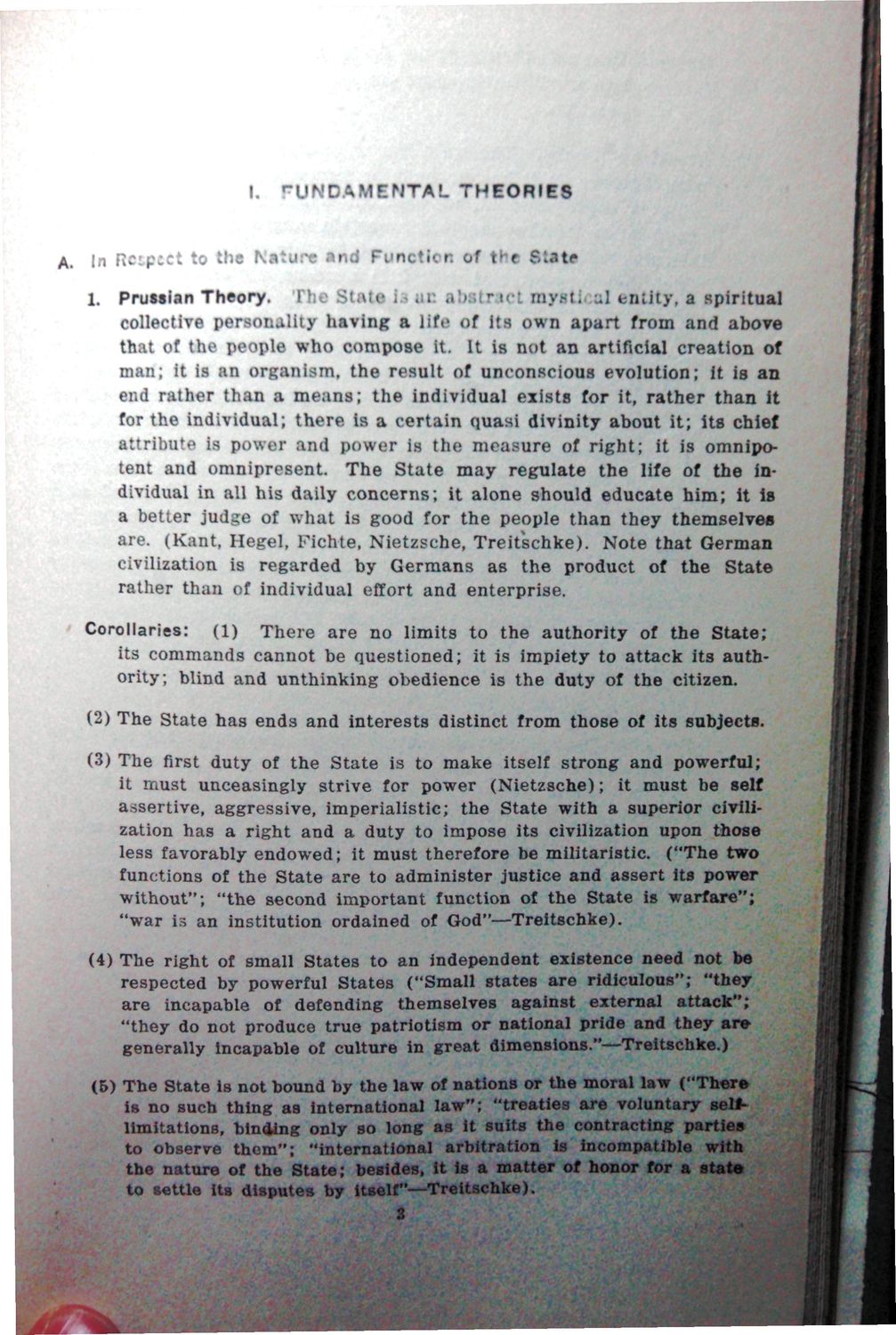| |
| |
Caption: War Publications - WWI Compilation 1923 - Article 48
This is a reduced-resolution page image for fast online browsing.

EXTRACTED TEXT FROM PAGE:
I. rUrOAMFJNTAL THEORIES A. In Rcipcct to the Nature and Function of thf Biate 1. Prussian Theory. I ho S t a i r .*; I abitTHCl mjBii .1 entity, a spiritual collective personuiiiy having a life of its own apart from and above that of the people who compose it. It is not an artificial creation of man; it is an organism, the result of unconscious evolution; it is an end rather than a means; the individual exists for it, rather than it for the individual; there is a certain quasi divinity about it; its chief attribute is power and power is the measure of right; it is omnipotent and omnipresent. The State may regulate the life of the individual in all his daily concerns; it alone should educate him; it is a better jud^e of what is good for the people than they themselves are. (Kant, Hegel, Kichte, Nietzsche, Treitschke). Note that German civilization is regarded by Germans as the product of the State rather than of individual effort and enterprise. Corollaries: (l) There are no limits to the authority of the State; its commands cannot be questioned; it is impiety to attack its authority; blind and unthinking obedience is the duty of the citizen. (2) The State has ends and interests distinct from those of its subjects. (3) The first duty of the State is to make itself strong and powerful; it must unceasingly strive for power (Nietzsche); it must be self assertive, aggressive, imperialistic; the State with a superior civilization has a right and a duty to impose its civilization upon those less favorably endowed; it must therefore be militaristic. ("The two functions of the State are to administer justice and assert its power without"; "the second important function of the State is warfare"; "war is an institution ordained of God"—Treitschke). (4) The right of small States to an independent existence need not be respected by powerful States ("Small states are ridiculous"; "they are incapable of defending themselves against external attack"; "they do not produce true patriotism or national pride and they are generally Incapable of culture in great dimensions."—Treitschke.) (5) The State is not bound by the law of nations or the moral law ("There is no such thing as international law"; "treaties are voluntary selflimitations, binding only so long as it suits the contracting parties to observe them"; "international arbitration is incompatible with the nature of the State; besides, it is a matter of honor for a state to settle its disputes by itself"—Treitschke). 3
| |